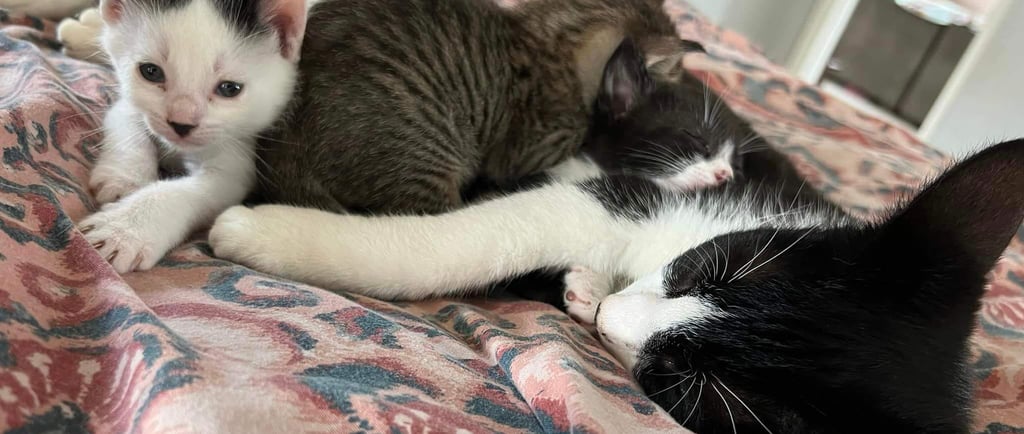What are common health issues in kittens, and how can I recognize them?
Kittens are susceptible to various health issues, and recognizing the signs early can make a significant difference in their well-being. Our latest blog post outlines common health problems in kittens, including upper respiratory infections, gastrointestinal issues, parasites, dehydration, hypothermia, eye issues, fading kitten syndrome, and neurological problems. Learn how to identify symptoms such as sneezing, diarrhea, visible worms, lethargy, and more. We provide insights into the causes of these conditions and offer guidance on prevention and treatment. Prompt veterinary care is crucial for addressing these health concerns, and regular check-ups, vaccinations, a balanced diet, and a clean environment can help ensure your kitten grows up healthy and strong. Stay informed and proactive to give your kitten the best start in life.
BLOG POSTS
7/10/20241 min read


Kittens, like all young animals, are vulnerable to certain health issues. Being aware of common problems and knowing how to recognize them early can help ensure prompt treatment and better outcomes for your kitten. Here are some common health issues in kittens and their signs:
Upper Respiratory Infections (URIs):
Signs: Sneezing, nasal discharge (clear or colored), coughing, watery eyes, lethargy, decreased appetite.
Cause: Viral or bacterial infections, often exacerbated by stress or poor hygiene.
Gastrointestinal Issues:
Signs: Diarrhea (liquid stools), vomiting, abdominal discomfort (crying or hunching over).
Causes: Dietary changes, parasites (e.g., worms), infections (e.g., viral or bacterial gastroenteritis).
Parasites:
Signs: Visible worms in stool, bloated abdomen, itching or scratching, dull coat.
Types: Roundworms, tapeworms, fleas, ear mites.
Treatment: Deworming medications prescribed by a veterinarian.
Dehydration:
Signs: Dry or sticky gums, sunken eyes, lethargy, decreased skin elasticity (skin tents when gently pulled).
Cause: Inadequate fluid intake, diarrhea, vomiting.
Hypothermia (low body temperature):
Signs: Cold to the touch, shivering, lethargy, weak movements.
Prevention: Keep kittens warm, especially neonates, in a draft-free environment.
Eye Issues:
Signs: Redness, swelling, discharge (clear, yellow, or pus-like), squinting, sensitivity to light.
Causes: Infections (e.g., conjunctivitis), trauma, congenital abnormalities.
Fading Kitten Syndrome:
Signs: Weakness, failure to thrive (poor weight gain despite feeding), difficulty regulating body temperature, lack of suckling reflex.
Causes: Can be multifactorial, including infections, birth defects, inadequate maternal care.
Neurological Problems:
Signs: Seizures, abnormal movements, head tilting, lack of coordination.
Causes: Infections (e.g., feline panleukopenia), trauma, congenital issues.
Recognizing these signs early is crucial for timely intervention. If you notice any concerning symptoms in your kitten, it's important to seek veterinary care promptly. A veterinarian can perform a thorough examination, diagnose the issue, and recommend appropriate treatment. Regular veterinary check-ups and vaccinations also help prevent many common health problems in kittens. Providing a safe, clean environment and a balanced diet tailored to their age and health needs can also contribute to their overall well-being.
Connect with Us!
1014 Manikin Ave S,
Lehigh Acres, FL 33974
© 2024. Cro and Oli Designs. All rights reserved.


(828) 216-1999
